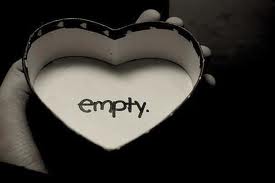It is always a confirmation for me when I am reading or learning something and realize I have been following those steps intuitively, not even realizing this was part of a process. The other day, for example, I found myself in a space of emotional pain because of something that had been said to me and it bothered me that I had allowed it to cause me pain. I could hear my mantra in my head, telling me to empty myself of the pain and allow it to be refilled by happiness. So I began by journaling about the situation, talking about it with a few people, and slowly realizing that what I need in my life is safety and security, which stems back to being given up for adoption when I was born. That understood, the dukkha (a Buddhist term for suffering) disappeared, and in its place was this sense of joy and relief.
While I was rereading the opening of Don't Believe Everything You Think: Living with Wisdom and Compassion by Thubten Chodron, I was reminded about the ability to empty my emotional attachment to feelings with syllogisms and self-debate. I had to identify three parts of my thought
A – the subject
B – the predicate
C – the reason
As they explained it
A is C
If it’s C, it must be B.
If its not B, it can’t be C.
Recently, as I worked through what was said to me recently, I found myself following a similar line of debate as to what Chodron had laid out in the book. I realized I had been using this quite often throughout my life without even knowing it. I remember thinking how person X was a bad person because they lied about me and betrayed my trust. It was true that he had lied and it was true that he had betrayed my trust. But did that make X a bad person? I wanted to say yes, but then as the book suggested, I found myself asking if “one action make[s] someone a bad person? Do thousands of harmful actions make someone a bad person? There is a difference between a harmful action and the person who did it.” They have done something bad, but that does not make them a bad person and it didn’t make me a bad person either. Them not liking me was about them, not me and it did not make me a bad person. Someone’s ability to like me or treat me with dignity and respect is about them, not me.
So once again, I was reminding myself of the importance of not taking things personally, the second agreement in Toltec Wisdom. What other people think or feel is about them, not me. It is only about me when I believe it to be true about me. I may not have chosen what was said or done, but I do have choice over how I respond. LOL. This is something I say to people all the time. Then Chodron offered the example of being “upset because someone criticized us. Here the syllogism is “I am mad because he criticized me.” Yes, he criticized me, but do I have to be mad because someone criticized me? No I have a choice of how to feel. I don’t have to be mad.”
When I have trouble getting past the feeling, like madness, I keep asking myself why. In one of my old journal entries from a few years ago, I found where I had journaled about this. I had written, “Why are you mad? Because he said, I wasn’t spiritual. Ok, so he said that, but why are you mad? Because that wasn’t true? Ok, so why do you need to be mad at that? Because I am spiritual and that was hurtful. Yes, it was but why are you choosing to be mad?” Ultimately, what I came to realize was that I wanted was encouragement, acknowledgement, and guidance. I came to realize that I was not going to get it from this person and that was ok. So I found other ways to meet those needs.
Maybe this is why I like a Buddhist mantra I once heard which says, “Empty, empty, happy, happy.” When I go through this process, I empty myself of anything causing me suffering and fill myself with peace and understanding. Empty, empty, happy, happy.

